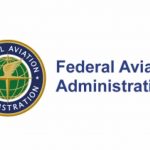40th Anniversary of CHIRP Aviation Programme
Steve Forward, Director Aviation, CHIRP
This year is the 40th anniversary of the CHIRP aviation programme and so perhaps a good opportunity to reflect on what it’s all about and how it’s been going.
Although commercial air transport accident rates are extremely low, they have remained relatively constant over the past few decades and a major challenge for the air transport industry has been to develop and promote effective processes to identify key causal factors that in some circumstances might lead to an accident, before the accident occurs.
Reports fall into two broad categories; those indicative of an undesirable trend, and those detailing discrete safety-related events, occurrences or issues. As part of this, since its inception, CHIRP’s role
has been to improve the quality of feedback from
the professional groups involved in air transport operations not just through the reporting of incidents but also the reporting of things that nearly happened (but were averted or didn’t develop into a reportable incident) in order to provide additional important information related to contributory causal factors.
Importantly, although mandatory reporting systems make an essential contribution to the feedback process, for many reasons they are less successful in gaining information on human factors related aspects due to individuals’ concerns about the personal implications of submitting reports that may be critical of their companies or superiors. Confidential human factors reporting systems were introduced to address this. It is important to understand that the confidentiality part applies to the identity of the reporter not the information; whenever possible the latter is disseminated as widely as possible, but in a disidentified manner so that the reporter cannot be recognised, and only with the reporter’s consent.
A confidential reporting system permits individuals who are working within the aviation system to report safety- related matters that they might not report through other ‘open’ systems. Reporting directly to an organisation such as CHIRP that is totally independent of the operational management and regulatory agencies allows reporters to describe the issue in their own words and ensures that reports are received without being filtered in any way.
More importantly, the confidential process permits the non-attributable reporting of deficiencies and discrepancies that may result from, or cause, human errors without exposing the reporter or other individuals within the system to critical judgement or the attachment of blame. On the other side of the coin, for companies and organisations, confidential reports provide a source of non-attributable safety information to safety management and regulatory agencies that otherwise would probably not be available. This type of information often provides organisations with early warning precursor alerts of potential problems, or substantiates other sources of information.
Within this, our mission at CHIRP – the ‘what’ – is to help improve aviation and maritime safety and build a Just Culture by managing an independent and influential programme for the confidential reporting of human factors- related safety issues. Our desired strategic outcomes – the ‘why’ – are:
- better leadership, awareness and attitude towards safety issues;
- improve safety culture by changing behaviours, so that practices, processes and procedures are as safe as they can be; and
- that safety outcomes identified in CHIRP reports are adopted by regulators, managers and individuals.With regard to Just Culture, nobody comes to work intending to fail: mistakes & errors are part of the human condition. However, sometimes people should have known better (unprofessional), could have known better (training), or may have intentionally broken the rules with good or bad intentions. These aspects all need to be taken into account when reviewing people’s actions in any incident or event. CHIRP’s four key principles of operation are:
• VOLUNTARY – Voluntarily submission of reports concerning events related to safety for the purpose of system alerting, understanding and learning.
• CONFIDENTIAL – Protection of identity through disidentification of persons, companies, and any other identifying information.
• INDEPENDENT – Trusted, unbiased dissemination of safety information and advice.
• JUST CULTURE – Non-judgemental safety net for reporting occurrences that might not otherwise be reported.
With the widespread introduction of additional safety processes such as company ‘open’ reporting schemes, Flight Operations Data Monitoring programmes and Line Operations Safety Audits, it might be questioned whether there is a continuing need for an independent confidential reporting system when other avenues are apparently more readily available.
However, the evidence from mature confidential systems is that reporters prefer to raise some safety-related issues on a confidential basis; this is demonstrated by the fact that despite the increased availability of alternative reporting methods, the number of confidential reports submitted per annum has remained essentially the same or increased over the past ten years (the 2 years of COVID-19 hiatus in aviation activities excepted). The key is that an integrated approach is essential to ensure that human performance and environmental information are appropriately and fairly coupled with technical/operational data because although data/event logging provides insights into human actions and ‘what happened’ it does not inform as to ‘why’ an event occurred, any pertaining external influences and distractions, or an individual’s capabilities and remaining capacity at the time.
A few words of caution though, the reports that CHIRP receives represent a fairly small statistical sample and so we should be careful about reading too much into them. Also, CHIRP obviously receives reports that are generally critical of things that have gone wrong and so there is a bias towards negativity that might not reflect the majority experience.
The top-15 key issues reported to CHIRP by Flight Crew over the last 12 months have seen Company Policies and Culture; Duties and Rosters; Commercial/ Management Pressures; and Management Relations well to the fore. Concerns have focused on FTL/FDP limits being regularly approached; rosters containing successive long-haul duties with minimum rest at destinations or after return to the UK; reduced resources (crew availability); pressures to operate to time schedules despite the additional constraints of COVID procedures; late rosters; and many reports of crews who feel fatigued but do not feel they can report as such due to fear of consequences.
Increased efficiency is a laudable notion that has obvious managerial attraction in keeping down costs as some airlines struggle to survive and remain viable in the immediate post-COVID economic circumstances but there’s a trade-off: as James Reason identified in his ‘Safety Space’ concept, at some point, reducing costs too far can have a negative impact on safety and this needs to be at the forefront of any change management risk assessment – as the old saw goes, ‘if you think safety is expensive, try having an accident…’
All of which has echoes from the past and indicates a continued need for confidential reporting so that regulators and senior management remain attuned to concerns and feedback from those at the coal-face. CHIRP will continue to engage with the CAA and organisations where it can to ensure that your concerns are aired in a confidential, independent and impartial manner. The first option should always be to use the formal ASR/MOR/VOR reporting systems where you feel able to because this will hopefully gain the quickest and most complete response to any concerns. But CHIRP stands ready to assist as best we can those who do not feel able to do so or wish to report concerns about things that ‘nearly happened’ and might not meet the threshold for formal reporting elsewhere.




